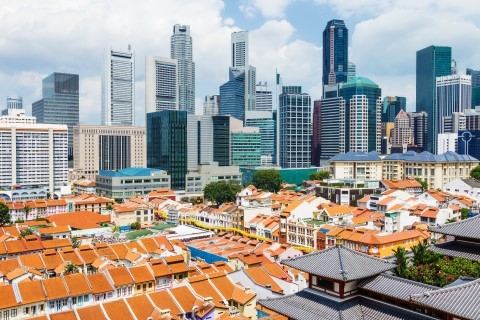
1,808 Airbnb-style leases in private homes reported in 2015-2017
There were also 390 cases in HDB flats.
From 2015 to 2017, the Urban Redevelopment Authority (URA) received 1,808 reports of short-term accommodations (STA), or Airbnb-style leasing, in private homes. There were also 390 reports of STA in HDB flats.
According to Minister for National Development Lawrence Wong, the time taken by URA and HDB to investigate a report of unauthorised STA depends on the circumstances of each case.
“Conducting ground inspections and interviews to obtain evidence of an offence can take several months in some instances,” he said in a parliamentary reply. “However, if the party making the report is able to provide details and documentary evidence of the suspected offence, investigations can be completed more expeditiously.”
Wong also gave updates on the public consultation on the regulations on STA. Many respondents supported the need for regulations on STA, given that STA can cause negative externalities to other residents.
The minister added that key concerns raised include safety, security and privacy, as well as abuse of common property. “Many also supported regulating STA platform operators, for example through a licensing framework,” he said.
One of the proposals was to require the management corporation of a strata-titled residential development to obtain the support of at least 80% of the share value in the development before STA can be permitted in any residential unit. Wong said there was a mixed response to this proposal.
“Some respondents felt that an 80% threshold would be unfair to the minority who do not support STA, but have to accept the presence of STA guests in their developments,” he said. “On the other hand, there were some who felt that an 80% threshold was too high and that it would be difficult to obtain sufficient votes in support of STA among homeowners.”
Also read: Who are the winners and losers in Singapore's proposed rules on Airbnb-style rentals?
URA is now in studying the feedback before deciding how to take this issue forward, including how to structure the final regulatory approach, and whether there is a need for any legislative amendments.
When asked about the impact of legalising STA on the hospitality industry, Wong said it is something that they have indeed considered very carefully.
“The proposed regulatory framework includes controls which are similar to those imposed on the hospitality industry. For example, under our proposed safeguards, STA hosts must collect and record the personal details of their guests, and comply with fire safety regulations such as the provision of fire extinguishers in their units,” he added.
The government has also proposed licensing platform operators to provide a “more level playing field” between the STA sector and the hospitality industry.
“Even as we consider the deliberations very carefully, I would like to emphasise that the minimum stay duration of three consecutive months for private residential properties still applies. URA will take enforcement action against those who breach this rule,” he said.
























 Advertise
Advertise










